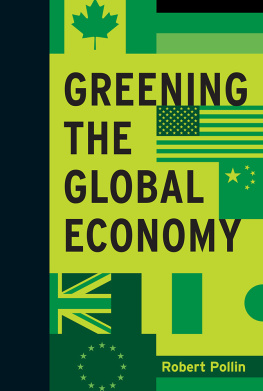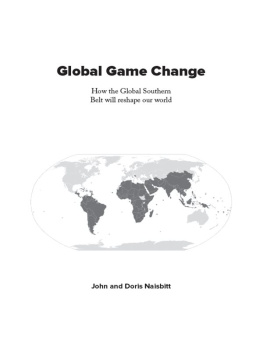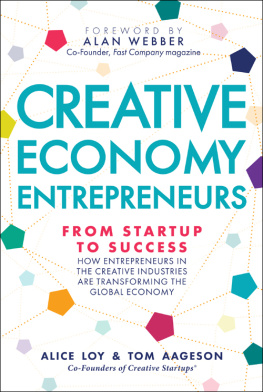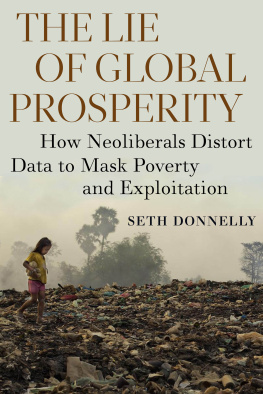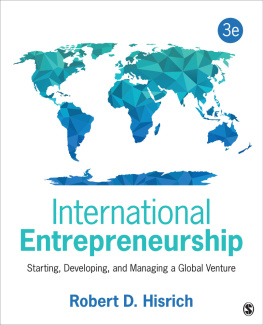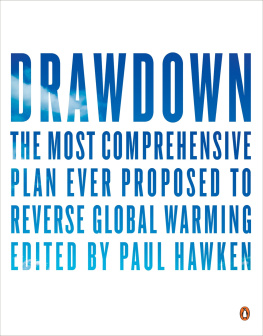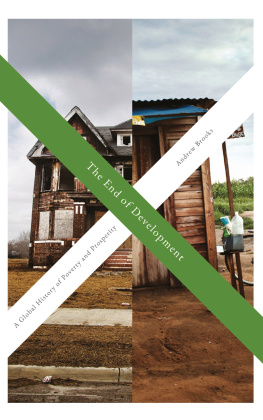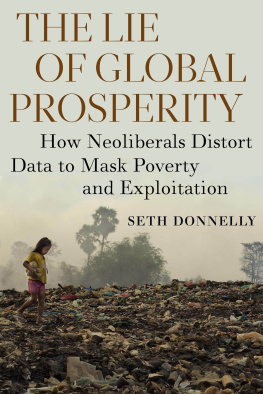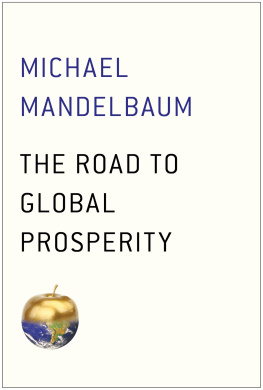THE COMING PROSPERITY
THE COMING PROSPERITY
THE COMING PROSPERITY
How Entrepreneurs Are
Transforming the Global Economy
Philip Auerswald


Oxford University Press, Inc., publishes works that further
Oxford Universitys objective of excellence
in research, scholarship, and education.
Oxford New York
Auckland Cape Town Dar es Salaam Hong Kong Karachi
Kuala Lumpur Madrid Melbourne Mexico City Nairobi
New Delhi Shanghai Taipei Toronto
With offices in
Argentina Austria Brazil Chile Czech Republic France Greece
Guatemala Hungary Italy Japan Poland Portugal Singapore
South Korea Switzerland Thailand Turkey Ukraine Vietnam
Copyright 2012 by Philip Auerswald
Published by Oxford University Press, Inc.
198 Madison Avenue, New York, NY 10016
www.oup.com
Oxford is a registered trademark of Oxford University Press
All rights reserved. No part of this publication may be reproduced,
stored in a retrieval system, or transmitted, in any form or by any means,
electronic, mechanical, photocopying, recording, or otherwise,
without the prior permission of Oxford University Press.
Library of Congress Cataloging-in-Publication Data
Auerswald, Philip E.
The coming prosperity : how entrepreneurs are transforming the global economy / Philip E. Auerswald. p. cm.
ISBN 978-0-19-979517-8 (hbk. : alk. paper) 1. GlobalizationEconomic aspects.
2. GlobalizationDeveloping countries. 3. Economic developmentDeveloping countries.
4. Economic developmentUnited States. 5. Developing countriesPopulationEconomic aspects.
I.Title.
HF1359.A927 2012
337dc23 2011029789
1 3 5 7 9 8 6 4 2
Printed in the United States of America
on acid-free paper
For Cecelia, Helena, and Isabel
CONTENTS
ACKNOWLEDGMENTS
This book has been in the works for a long time. I started to shape it about two years ago. But the ideas and experiences I relate here started to shape me long before that.
Reading Gregory Batesons Mind and Nature: A Necessary Unity, a gift from my uncle to me when I was nineteen years old, provided significant initial impetus along the path that led to the ideas and convictions expressed in these pages. I was pushed further by a year of travel made possible by a small contract with McCormick & Company of Baltimore to research its international operations. That trip, covering nine countries in Asia, included many memorable experiences, notably (in the context of this book) an opportunity to meet the famed Indian industrialist Naval Tata, whom I quote in chapter 14. In the midst of those travels I spent three months working at the Foreign Languages Press (Waiwenju) in Beijingan experience I describe in chapter 3, made possible by a family friend, Mrs. Jane Shaw.
In the years that followed I had the chance to explore questions related to the organization of human society, prompted by the formative experiences just described, under the guidance of some truly remarkable mentors: the sociologist Juan Linz, who was my academic adviser in college; the economist Karl Shell, who, though not formally on my dissertation committee, offered hugely valuable guidance to me at an early stage in my career; the evolutionary biologist Stuart Kauffman, whose work significantly influenced my own contributions to the theory of entrepreneurship and innovation; and the physicist turned innovation-policy pioneer Lewis Branscomb, who has been a close friend and collaborator for over a decade. To each of them I owe a lifelong debt.
To list other colleagues who have influenced me in developing the ideas in this book is a dangerous matter. I inevitably will recognize later that I made regrettable omissions. However, in roughly chronological order dating from the time of our first acquaintance, I must thank, David Audretsch, Richard Florida, Iqbal Quadir, Maryann Feldman, Don Kash, Christopher Hill, Zoltan Acs, Pamela Hartigan, Martin Fisher, Deborah van Opstal, and Nadeem Haque.
Fast-forwarding to the matter immediately at handwriting and publishing this bookmy first thanks have to go to the Kauffman Foundation, which, through two separate grants, contributed substantially both to the initiation of this project and to its successful conclusion. Among my colleagues at the Kauffman Foundation, where I am currently a Senior Fellow (on leave from my faculty position at George Mason University), I owe specific thanks to Carl Schramm, who personally encouraged me in this undertaking from the outset, and to Bob Litan, Lesa Mitchell, and Dane Stangler, who have offered both general insights on themes integral to this book and specific comments on the book itself.
In the earliest stages of developing a proposal and finding a publisher, my agent at Dystel & Goderich, Jessica Papin, was enormously helpful. Her initial feedback on my proposal is significantly reflected in the final product. Similarly, I similarly thank Ben Rudnick for his insightful early feedback; I also thank Tyler Cowen, John Berger, Gardiner Harris, and Mark Chait for valuable counsel in the early stages of this project.
The editors with whom I have worked at Oxford University Press, Terry Vaughn and Joe Jackson, connected immediately with the core themes of the book and have remained actively engaged throughout the production process. I thank both of them, and the rest of the creative team at Oxford University Press, for having taken on the book to begin with, and for supporting it so steadfastly.
Numerous friends and colleagues offered detailed comments on the draft at different stages. Among them, I must specifically acknowledge Adam Hasler, Sandra Maxey, Peter Davis, and Erin Krampetz, who each read, and even reread, the entire draft and whose thoughtful feedback has been of great value. I am similarly grateful to Helen Snively, Dody Riggs, Peter Boettke, Gregory Lee, Christina Sass, Jeehye Lee, and Jinee Lee for their very helpful comments on various parts of the manuscript.
In this age of social networking, I would be remiss not to acknowledge the loosely bounded community to which I am connected via Twitterthe people who know me simply as @auerswald. Through the process of writing this book I have been alerted to many valuable research resources, and otherwise have learned a good deal, from many people to whom my connections are only virtual.
In a related category, I must acknowledge Javier Rivas, the founder and owner of the Modern Times Coffeehouse at Politics & Prose bookstore in Washington, DC, as well as Mark and Stephen Fedorchak, founders and owners of Northside Social in Arlington, Virginia; their establishments are reliable homes-away-from-home for many authors, entrepreneurs, and generally office-averse types (including me).
Authors customarily conclude their acknowledgments by thanking their families. Now that Ive completed my first full-length, single-authored book, I understand why. It is not possible to complete a bookat least, it was not for mewithout substantially disrupting domestic routines. My wife, Katje, and my daughters, Isabel, Helena, and Cecelia, consequently were destined to support me in this project whether they liked it or not. However, my family did much more than to tolerate my absences and my perpetual state of distractedness during the many months I worked on this book. They also gave me the energy every day to keep pushing forward.



